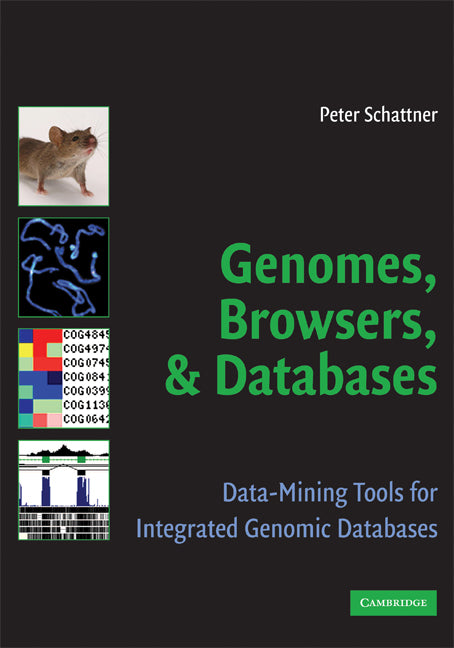Freshly Printed - allow 8 days lead
Couldn't load pickup availability
Genomes, Browsers and Databases
Data-Mining Tools for Integrated Genomic Databases
Guide to key tools for large-scale gene-sequence and annotation comparisons for bioinformatics students and researchers.
Peter Schattner (Author)
9780521711326, Cambridge University Press
Paperback, published 16 June 2008
344 pages, 51 b/w illus. 4 tables 46 exercises
25.3 x 17.8 x 1.6 cm, 0.59 kg
'… provides a step-by-step account of how most commonly-used databases are compiled and updated, their applications and practical examples of how to use them. It is suitable for graduates and advanced undergraduates in bioinformatics or biology, or any researcher intent on exploiting the capabilities of databases as research tools more fully. … the great strength of this book is its focus on basic concepts, with an emphasis on how to obtain information, enabling the reader to find new things out for themselves.' Journal of Biological Education
The recent explosive growth of biological data has lead to a rapid increase in the number of molecular biology databases. Held in many different locations and often using varying interfaces and non-standard data formats, integrating and comparing data from these multiple databases can be difficult and time-consuming. This book provides an overview of the key tools currently available for large-scale comparisons of gene sequences and annotations, focusing on the databases and tools from the University of California, Santa Cruz (UCSC), Ensembl, and the National Centre for Biotechnology Information (NCBI). Written specifically for biology and bioinformatics students and researchers, it aims to give an appreciation of the methods by which the browsers and their databases are constructed, enabling readers to determine which tool is the most appropriate for their requirements. Each chapter contains a summary and exercises to aid understanding and promote effective use of these important tools.
1. The molecular biology data explosion
2. Introduction to genome browsing with the UCSC Genome Browser
3. Browsing with Ensembl, Map Viewer and other genome browsers
4. Interactive genome-database batch querying
5. Interactive batch post-processing with Galaxy
6. Introduction to programmed querying
7. Using the Ensembl API
8. Programmed querying with Ensembl, continued
9. Introduction to the UCSC API
10. More advanced application using the UCSC API
11. Customized genome databases
12. Genomes, browsers, databases - the future.
Subject Areas: Data mining [UNF], Biotechnology [TCB], Genetics [non-medical PSAK]


